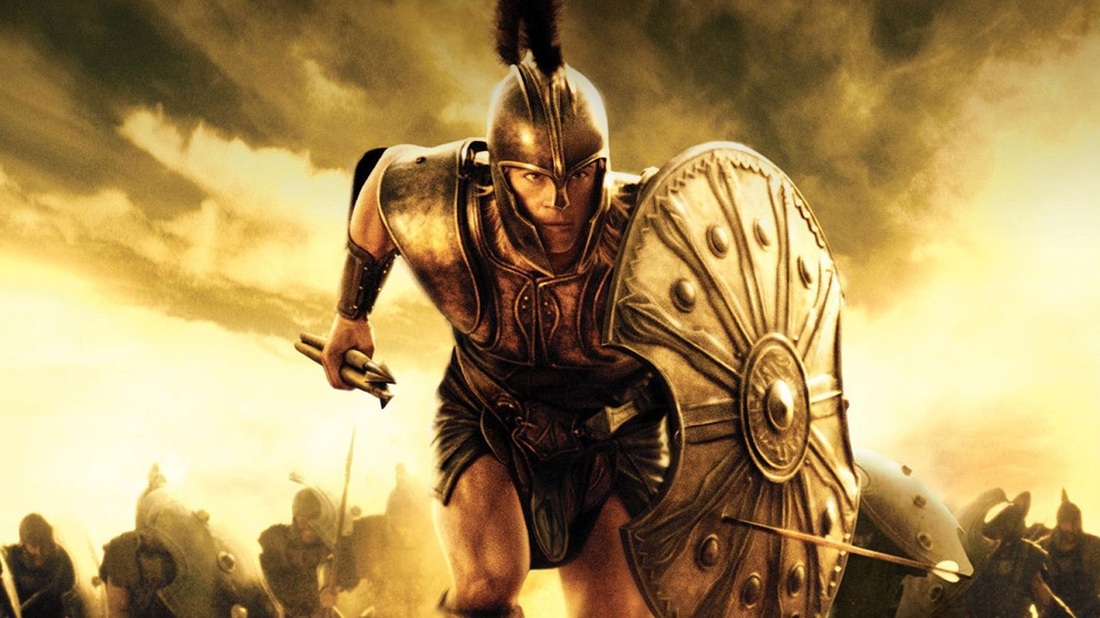Achilles As An Allusion:
Milton’s Paradise Lost
Achilles, the most powerful warrior in Greece in mythology, serves as a literary allusion for anger. In Homer’s Iliad, the god Apollo demands the release of Chryses, a woman stolen and made a slave by Agamemnon, Achilles’ commander. Agamemnon grudgingly releases Chryses, his war prize, however demands to have Breises, Achilles’s war prize, as Chryses’ replacement, which angers Achilles greatly as Achilles has grown to love Breises and so Achilles refuses to help Agamemnon fight the Trojans. In Achilles’ absence, his close friend Patroclus is killed in battle by Hector, leaving Achilles distraught and consumed by anger. Achilles comes to Troy seeking revenge and after chasing Hector around the outer wall of the city three times, battles Hector and kills him. In the end, Achilles is murdered by Paris, Hector’s brother. Achilles allusion is used in Milton’s book Paradise Lost to compare Achilles to his depiction of Satan. In book 9, line 14-16 he compares Satan’s anger toward God with Achilles’ anger toward Hector.
” Sad task,[ referring to Satan’s attack on God ] yet argument, Not less but more Heroic then the wrauth Of stern Achilles on his Foe pursu'd, Thrice Fugitive about Troy Wall…”( Book 9).
Both Achilles and Satan suffer severe consequences as a result of their anger dictating their decisions. Achilles loses his close friend and in the end is killed by Hector’s brother, Paris. Satan is cast out of Heaven and sent to Hell to suffer for eternity.
Works Cited:
Milton, John Paradise Lost (1667)Book 9: lines 14-16
Homer ,The Iliad(1488)
Milton’s Paradise Lost
Achilles, the most powerful warrior in Greece in mythology, serves as a literary allusion for anger. In Homer’s Iliad, the god Apollo demands the release of Chryses, a woman stolen and made a slave by Agamemnon, Achilles’ commander. Agamemnon grudgingly releases Chryses, his war prize, however demands to have Breises, Achilles’s war prize, as Chryses’ replacement, which angers Achilles greatly as Achilles has grown to love Breises and so Achilles refuses to help Agamemnon fight the Trojans. In Achilles’ absence, his close friend Patroclus is killed in battle by Hector, leaving Achilles distraught and consumed by anger. Achilles comes to Troy seeking revenge and after chasing Hector around the outer wall of the city three times, battles Hector and kills him. In the end, Achilles is murdered by Paris, Hector’s brother. Achilles allusion is used in Milton’s book Paradise Lost to compare Achilles to his depiction of Satan. In book 9, line 14-16 he compares Satan’s anger toward God with Achilles’ anger toward Hector.
” Sad task,[ referring to Satan’s attack on God ] yet argument, Not less but more Heroic then the wrauth Of stern Achilles on his Foe pursu'd, Thrice Fugitive about Troy Wall…”( Book 9).
Both Achilles and Satan suffer severe consequences as a result of their anger dictating their decisions. Achilles loses his close friend and in the end is killed by Hector’s brother, Paris. Satan is cast out of Heaven and sent to Hell to suffer for eternity.
Works Cited:
Milton, John Paradise Lost (1667)Book 9: lines 14-16
Homer ,The Iliad(1488)

 RSS Feed
RSS Feed